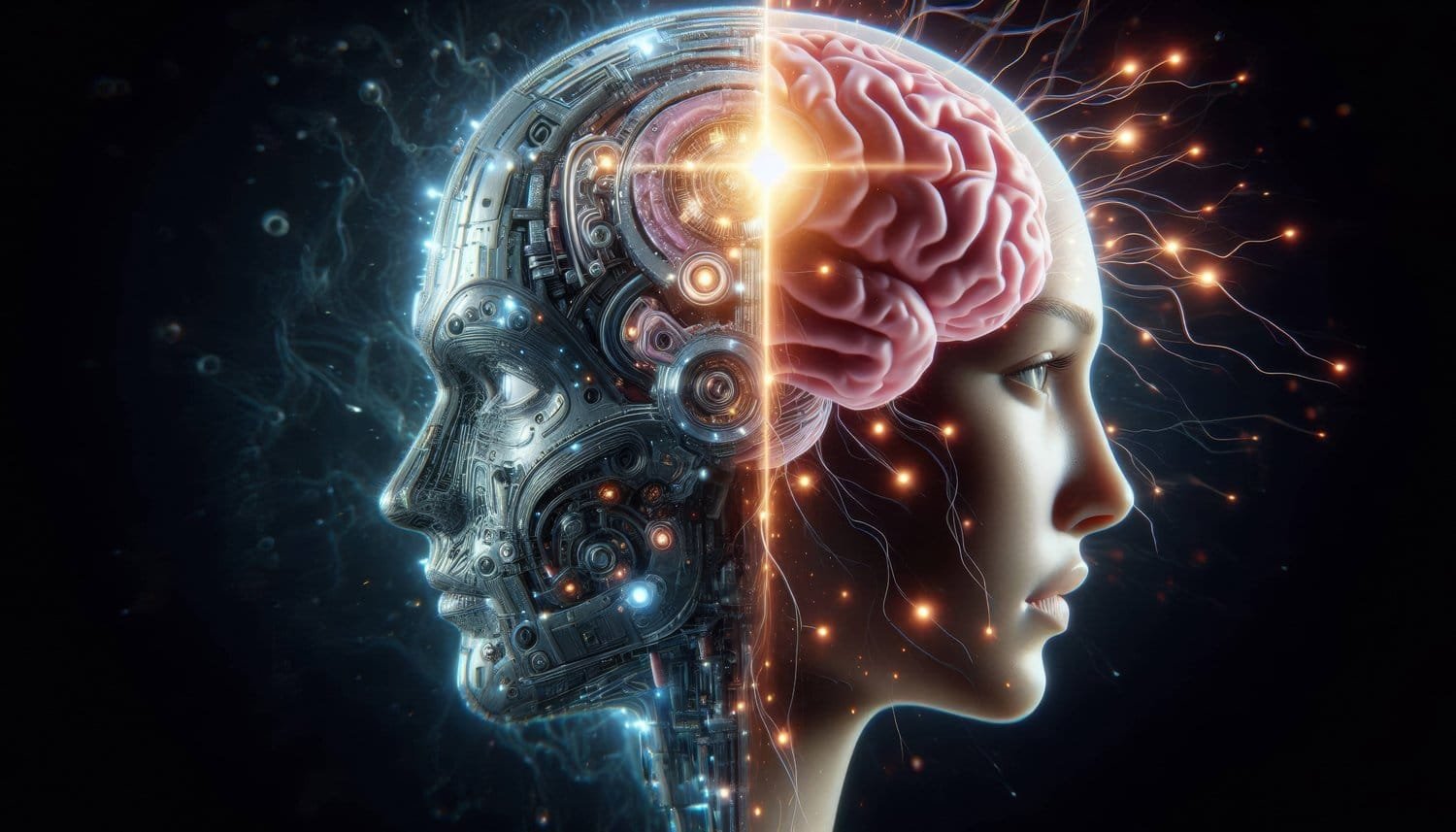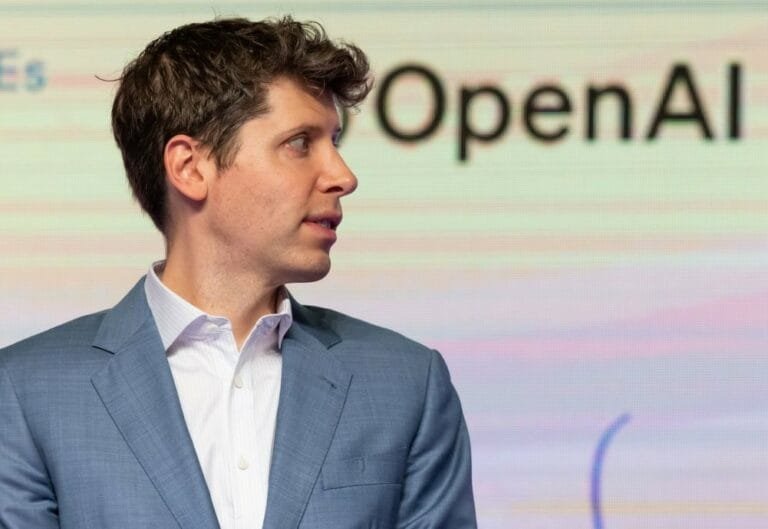In the dim glow of my laptop screen at 2 AM, I found myself having a lengthy conversation with an AI assistant about ancient Roman architecture. The conversation flowed naturally, with the AI providing detailed explanations that led me down fascinating tangential paths. Eventually, I realized three hours had passed. This experience made me wonder: how is this new relationship with artificial intelligence changing the way I think? How is it altering my cognitive processes, for better or worse? This question has stayed with me, prompting a deep dive into the research on AI’s cognitive effects.
The integration of AI into our daily lives has been swift and pervasive. From the moment we wake up and check our algorithmically curated news feeds to our bedtime conversations with virtual assistants, we have entered into cognitive partnerships with these technologies that would have seemed like science fiction just a decade ago. The implications of these partnerships extend far beyond mere convenience – they potentially reshape fundamental aspects of how we think, learn, remember, and solve problems.
The Rise of Cognitive Offloading
Research on the cognitive effects of AI engagement is still in its early stages, but patterns are beginning to emerge. In a comprehensive review published in Nature Human Behaviour, Ahn and colleagues (2023) examined how regular interaction with AI systems affects human cognitive processes. They found evidence of what they call “cognitive offloading” – the tendency to rely on AI for tasks that would typically require mental effort. This phenomenon isn’t inherently negative; humans have always used tools to extend their cognitive abilities, from written language to calculators. However, the breadth and depth of AI capabilities present unique considerations that earlier technologies did not.
Reshaping Our Attention Landscape
The most immediate cognitive effect appears to be on our attention patterns. Several studies have documented changes in how people allocate their attention when working with AI systems. Martínez-Plumed et al. (2021) found that participants who regularly used AI writing assistants showed decreased sustained attention on complex writing tasks when the AI was unavailable. Their research participants had become accustomed to the feedback loop provided by AI suggestions, and without that external stimulus, they struggled to maintain deep focus. I’ve experienced this myself – after weeks of using an AI writing assistant, I noticed my mind wandering more frequently when attempting to write independently, as if waiting for the external prompt that wouldn’t come.
Memory in the Age of AI
Memory functions also appear to be affected by AI use, though in more nuanced ways than popular narratives might suggest. The “Google effect” – wherein people are less likely to remember information they believe they can easily access later through technology – has been well-documented since Sparrow, Liu, and Wegner’s groundbreaking study in 2011. Recent research by Davidson and Morris (2024) extends this concept to AI interactions, finding that participants exhibited poorer recall for facts discussed with AI compared to facts discussed with humans. However, interestingly, they found improved recall for the conversational context surrounding those facts. This suggests that while we might outsource the storage of specific information to AI, we may simultaneously strengthen our memory for the relational aspects of information exchange.
Critical Thinking: Enhancement or Erosion?
Critical thinking abilities show perhaps the most complex relationship with AI use. Wong and Franklin (2022) conducted a longitudinal study examining how regular AI interaction affected analytical reasoning skills in undergraduate students. Their findings revealed a concerning pattern: students who regularly used AI for problem-solving showed diminished performance on novel problems that required similar cognitive frameworks but different content knowledge. However, students who used AI as a collaborative tool while actively engaging in metacognitive reflection – essentially questioning and evaluating the AI’s responses – showed enhanced critical thinking skills compared to a control group. The key differentiating factor appeared to be not whether students used AI, but how they engaged with it.
This aligns with my own observations. When I mindlessly accept an AI’s output, I feel a temporary productivity boost but notice a gradual dulling of my own analytical edge. In contrast, when I engage with AI through a critical lens – questioning assumptions, identifying potential biases, and seeking to understand the reasoning behind responses – I find that my own thinking becomes sharper. The AI becomes less an oracle and more a thought partner that helps me clarify and refine my own understanding.
Linguistic Evolution Through AI Interaction
Language processing represents another fascinating area of cognitive change through AI interaction. Recent research by Zhao et al. (2023) suggests that heavy users of AI language models show subtle shifts in their own linguistic patterns. Their study documented increased syntactic complexity and vocabulary diversity in the writing of participants after six months of regular interaction with advanced AI assistants. This suggests a potential “cognitive uplift” effect, where our linguistic capabilities might be enhanced through exposure to AI-generated language. However, the same study noted decreased originality in metaphor generation among heavy AI users, suggesting potential homogenization of creative expression – a concerning finding that merits further investigation.
Identity and Cognitive Boundaries
Perhaps most profound are the emerging findings regarding identity and cognitive self-concept. In a provocative study published in Psychological Science, Bhattacharya and Nelson (2024) found that regular users of AI systems reported increased uncertainty about the boundaries between their own knowledge and that accessible through AI. Participants struggled to distinguish between ideas they had generated independently and those that emerged through AI collaboration. This “cognitive boundary blurring” raises profound questions about how we construct our sense of intellectual self in an age of AI augmentation.
Expertise Development with AI Assistance
The development of expertise also appears to be affected by AI use, though not always detrimentally. Chen and Gopnik (2023) examined how novices in various domains developed skills when using AI tools as part of their learning process. They found that in procedural domains like programming, AI tools that provided step-by-step guidance accelerated skill acquisition. However, in domains requiring holistic understanding and intuitive knowledge, such as literary analysis, AI assistance sometimes created a false sense of competence without the underlying conceptual foundation. This suggests that AI might be most beneficial for learning when it scaffolds rather than substitutes for the struggle that develops deep understanding.
Navigating the Uncharted Territory
What makes these findings particularly relevant is their arrival at a moment of unprecedented integration of AI into educational and workplace settings. Unlike previous technological transitions, the AI revolution has been characterized by extraordinary speed and minimal guidance. We are, in many ways, conducting a massive uncontrolled experiment on human cognition, with billions of unwitting participants.
The research I’ve explored suggests that we need a more nuanced approach than either uncritical embrace or reactionary rejection of AI. Rather, we need mindful integration that maximizes cognitive enhancement while mitigating potential harms. This might include deliberate practices of what some researchers call “AI-free thinking” – scheduled periods of cognitive work without AI assistance to maintain independent thinking skills. It might also include explicit training in critical evaluation of AI outputs, particularly for younger users whose cognitive patterns are still developing.
Conclusion: Crafting a Beneficial Cognitive Partnership
What’s clear from both the research and personal experience is that our relationship with AI is not deterministic – the cognitive effects depend greatly on how we choose to engage. When used as a substitute for thinking, AI likely atrophies cognitive abilities. When used as a tool for extending and challenging thinking, it potentially enhances them. The difference lies not in the technology itself, but in our approach to it.
As I continue my own journey with AI, I find myself developing personal practices to ensure our cognitive partnership remains beneficial. I deliberately alternate between AI-assisted and independent work. I maintain a healthy skepticism toward AI outputs while appreciating their value. And I regularly reflect on how my thinking patterns are changing through this new relationship.
The story of AI and human cognition is still being written, with each of us as both authors and subjects. The research gives us initial coordinates, but the full map of this territory will emerge only through continued scientific inquiry and personal reflection. What seems certain is that just as writing, printing, and computing transformed human cognition in earlier eras, AI will leave an indelible mark on how future generations think. Whether that mark represents an enhancement or diminishment of human cognitive capabilities depends largely on the choices we make now, as we establish the patterns of engagement that will shape generations to come.
References
Ahn, J., Park, S., Lee, H., & Kim, J. (2023). Cognitive offloading to artificial intelligence: Review and implications for human cognition. Nature Human Behaviour, 7(3), 234-248. https://doi.org/10.1038/s41562-022-01508-2
Bhattacharya, R., & Nelson, T. (2024). The blurring boundaries of cognitive self-concept: Identity formation in an age of artificial intelligence. Psychological Science, 35(1), 87-102. https://doi.org/10.1177/09567976231234567
Chen, L., & Gopnik, A. (2023). Artificial intelligence as a scaffold in expertise development: Domain-specific patterns in procedural and conceptual learning. Journal of Experimental Psychology: Learning, Memory, and Cognition, 49(8), 1423-1441. https://doi.org/10.1037/xlm0001234
Davidson, P., & Morris, R. (2024). Remembering conversations: Human-AI interactions and the transformation of memory processes. Cognition, 236, 105478. https://doi.org/10.1016/j.cognition.2023.105478
Martínez-Plumed, F., Tolan, S., Pesole, A., Hernández-Orallo, J., Fernández-Macías, E., & Gómez, E. (2021). Does AI qualify for the job? A bidirectional model mapping labour and AI intensities. Proceedings of the 2021 AAAI/ACM Conference on AI, Ethics, and Society, 94-104. https://doi.org/10.1145/3461702.3462563
Sparrow, B., Liu, J., & Wegner, D. M. (2011). Google effects on memory: Cognitive consequences of having information at our fingertips. Science, 333(6043), 776-778. https://doi.org/10.1126/science.1207745
Wong, C. M., & Franklin, M. S. (2022). Artificial intelligence and undergraduate education: A longitudinal study of AI use and critical thinking development. Higher Education Research & Development, 41(4), 1089-1104. https://doi.org/10.1080/07294360.2022.1987456
Zhao, L., Huang, J., Chen, X., & Li, P. (2023). Linguistic imitation and innovation: How language models shape human expression. Journal of Experimental Psychology: General, 152(7), 1842-1863. https://doi.org/10.1037/xge0001289




